What Is a Heat Pump and How Does It Work?
A heat pump is a highly efficient and versatile system designed to provide both heating and cooling for residential and commercial spaces. Unlike traditional heating and cooling systems, which generate heat or cold air directly, a heat pump transfers heat from one location to another using advanced refrigeration technology. This makes it an energy-efficient option for maintaining comfortable indoor temperatures throughout the year.
How Does a Heat Pump Work?
At its core, a heat pump operates by transferring heat rather than generating it. It uses a cycle of evaporation, compression, condensation, and expansion to move heat between the inside and outside of your home. Here’s a step-by-step breakdown of its cooling mechanism:
- Heat Absorption:
The heat pump absorbs warm air from inside your home through an evaporator coil filled with refrigerant. - Compression:
The refrigerant is then compressed, which increases its temperature and pressure, allowing the system to transfer the heat effectively. - Heat Release:
The warm air is released outside through the condenser coil, cooling down the refrigerant. - Cycle Repeats:
The refrigerant cycles back to the evaporator coil to absorb more indoor heat, continuously maintaining a cool and comfortable indoor environment.
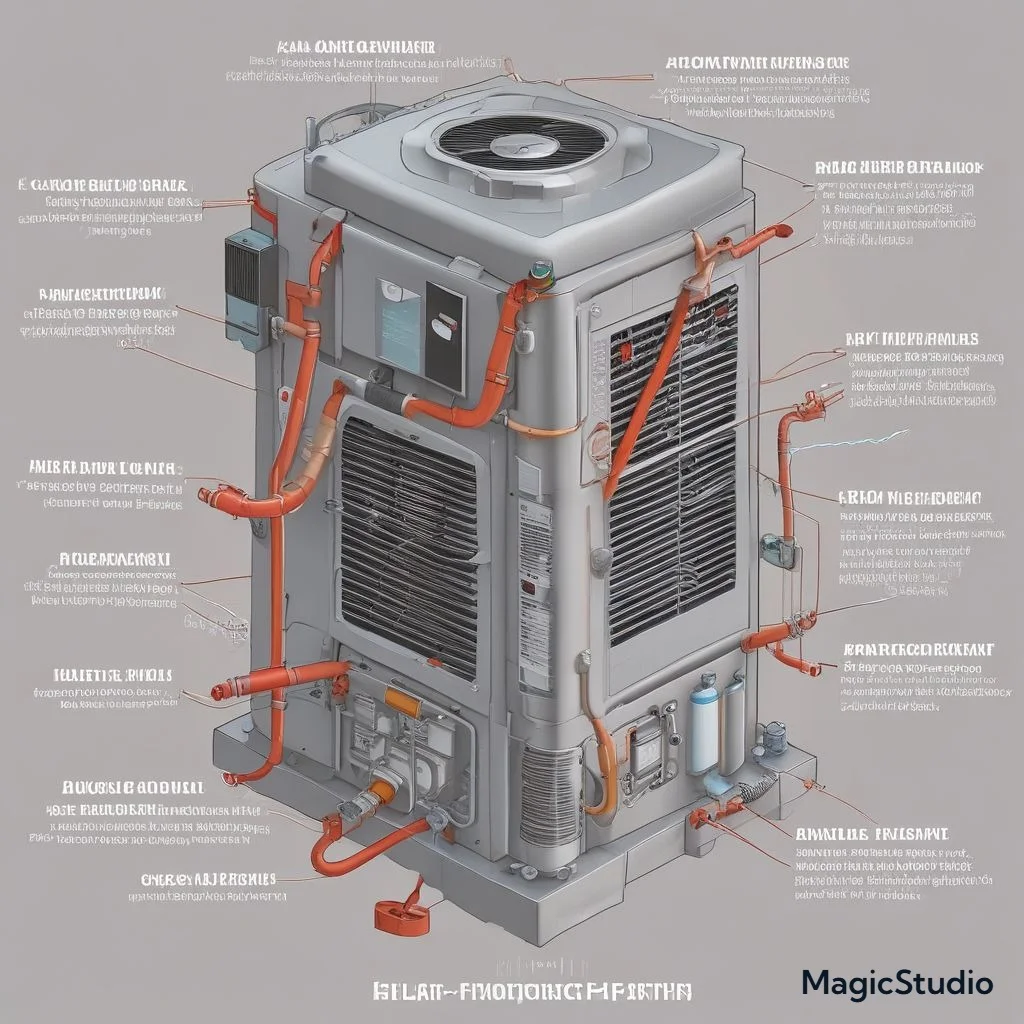
Types of Heat Pumps
There are several types of heat pumps, each designed for specific environmental conditions and needs.
- Air Source Heat Pumps (ASHP):
These are the most common type of heat pump, drawing heat from the outside air and releasing it inside for heating or outside for cooling. They are highly energy-efficient and suitable for moderate climates. - Ground Source Heat Pumps (GSHP):
Also known as geothermal heat pumps, these systems transfer heat to and from the ground. GSHPs are incredibly efficient as ground temperatures remain relatively constant year-round. - Water Source Heat Pumps:
These systems use nearby water bodies, such as lakes or rivers, as a heat exchange source. They are less common but can be a great option for homes near suitable water sources.
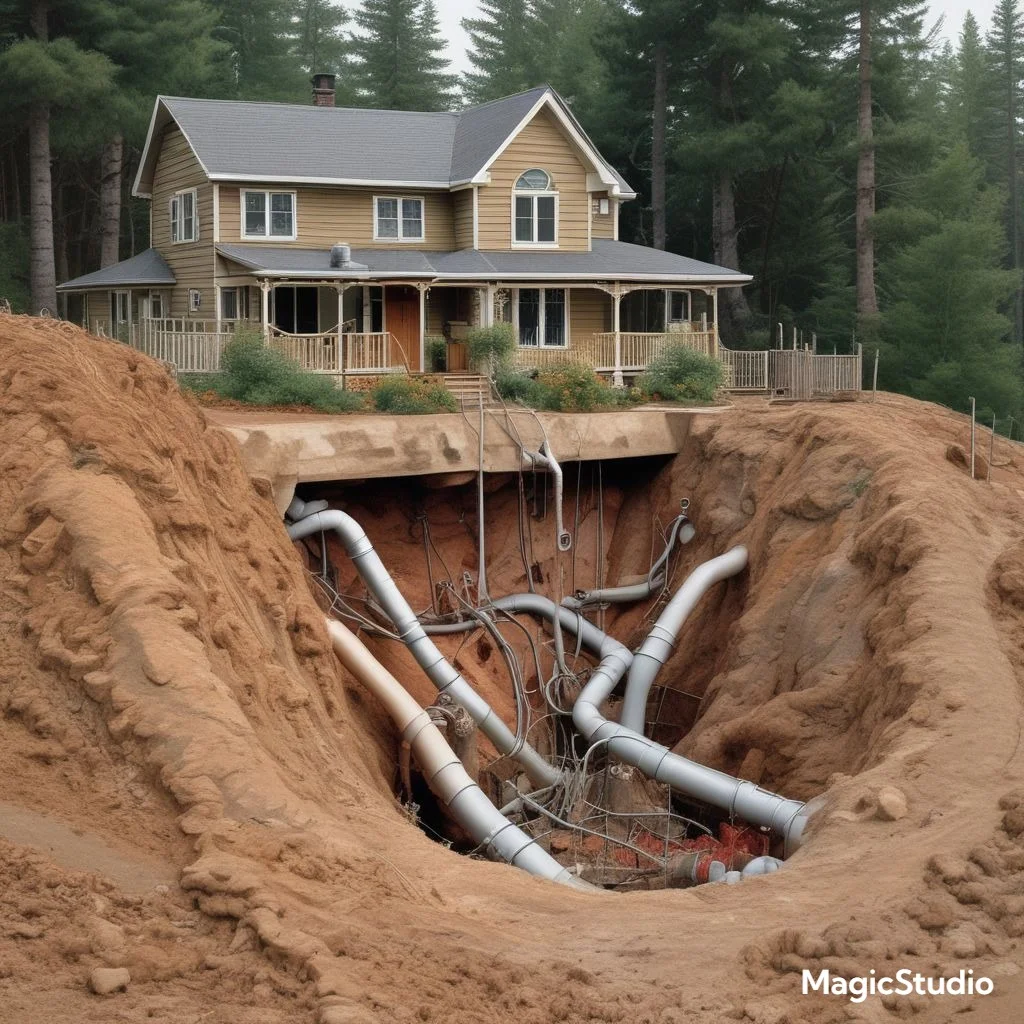
Advantages of Heat Pumps
- Energy Efficiency: Heat pumps use significantly less energy compared to traditional HVAC systems.
- Dual Functionality: One system handles both heating and cooling, reducing the need for separate units.
- Eco-Friendly: With lower greenhouse gas emissions, heat pumps are a sustainable choice.
How Air Conditioners and Heat Pumps Work
Both air conditioners and heat pumps are essential cooling systems that help maintain a comfortable indoor environment, especially in hot weather. While they share similarities in function, there are key differences in how each system operates. Understanding these differences can help homeowners choose the best option for their needs.
Overview of Air Conditioning Systems
An air conditioner (AC) is designed specifically to cool indoor spaces by removing heat from the air and expelling it outside. It uses a closed-loop refrigeration cycle to lower indoor temperatures efficiently.
How Air Conditioners Work:
- Heat Absorption: Warm indoor air is drawn into the system and passed over an evaporator coil containing refrigerant. The refrigerant absorbs the heat, cooling the air.
- Heat Transfer: The refrigerant, now heated, moves to the outdoor unit where it releases the absorbed heat into the atmosphere via the condenser coil.
- Cooling Circulation: The cooled air is then circulated back indoors through ductwork or vents, creating a comfortable environment.
- Continuous Cycle: This process repeats until the desired indoor temperature is achieved.
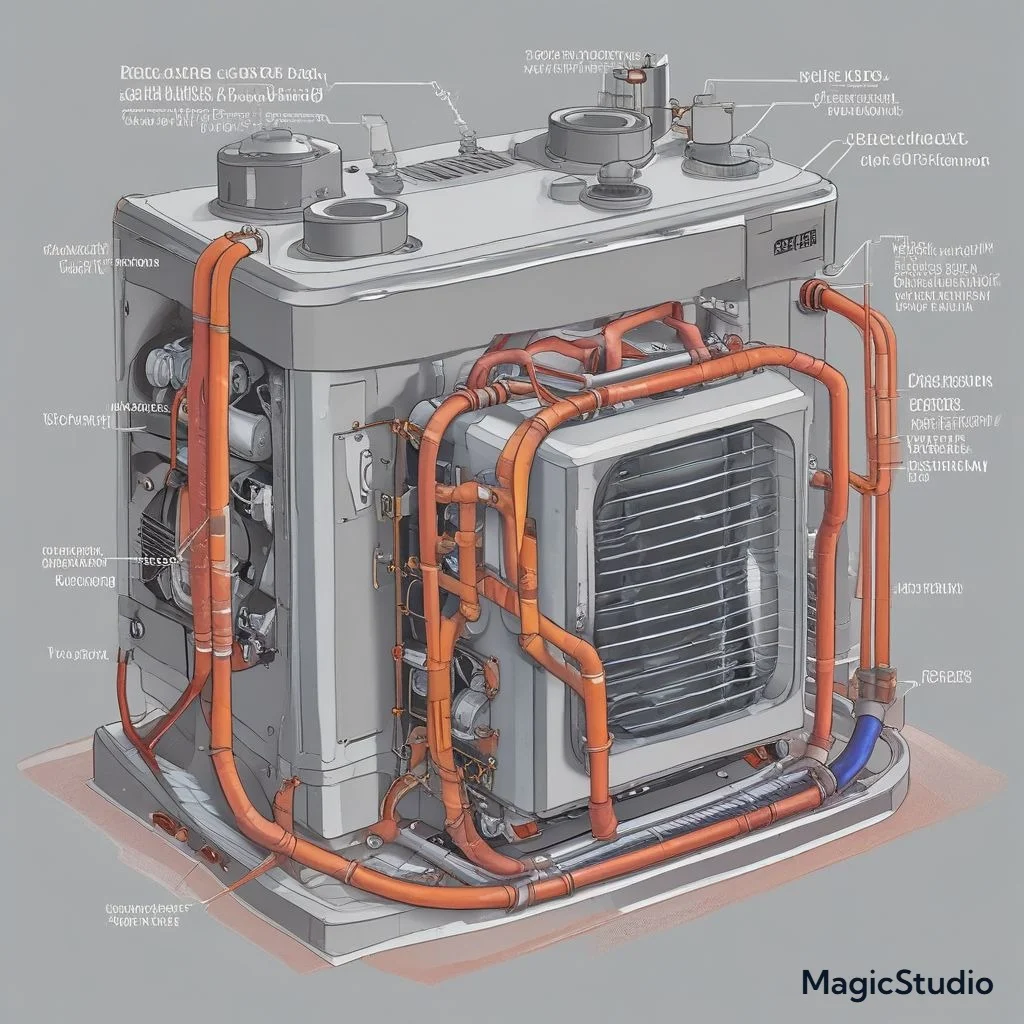
How Heat Pumps Achieve Cooling Compared to Air Conditioners
A heat pump operates similarly to an air conditioner when cooling but offers additional versatility. The key difference lies in the heat pump’s ability to reverse its cycle, allowing it to provide both heating and cooling.
Cooling Process of a Heat Pump:
- Heat Absorption: Just like an AC, a heat pump pulls warm air from indoors and passes it over an evaporator coil containing refrigerant.
- Heat Transfer: The refrigerant absorbs the heat and transfers it to the outdoor unit, where it is expelled into the air.
- Reversible Cycle: Unlike an air conditioner, a heat pump can reverse this process in colder months, extracting heat from the outside air to warm the home.
Key Differences in Cooling:
- Flexibility: Heat pumps can switch between heating and cooling, making them suitable for year-round use.
- Energy Source: Heat pumps are often more energy-efficient, especially in moderate climates, due to their ability to transfer heat rather than generate it.
- Cost Efficiency: Over time, heat pumps may result in lower energy bills compared to traditional air conditioners, particularly in areas with mild winters.
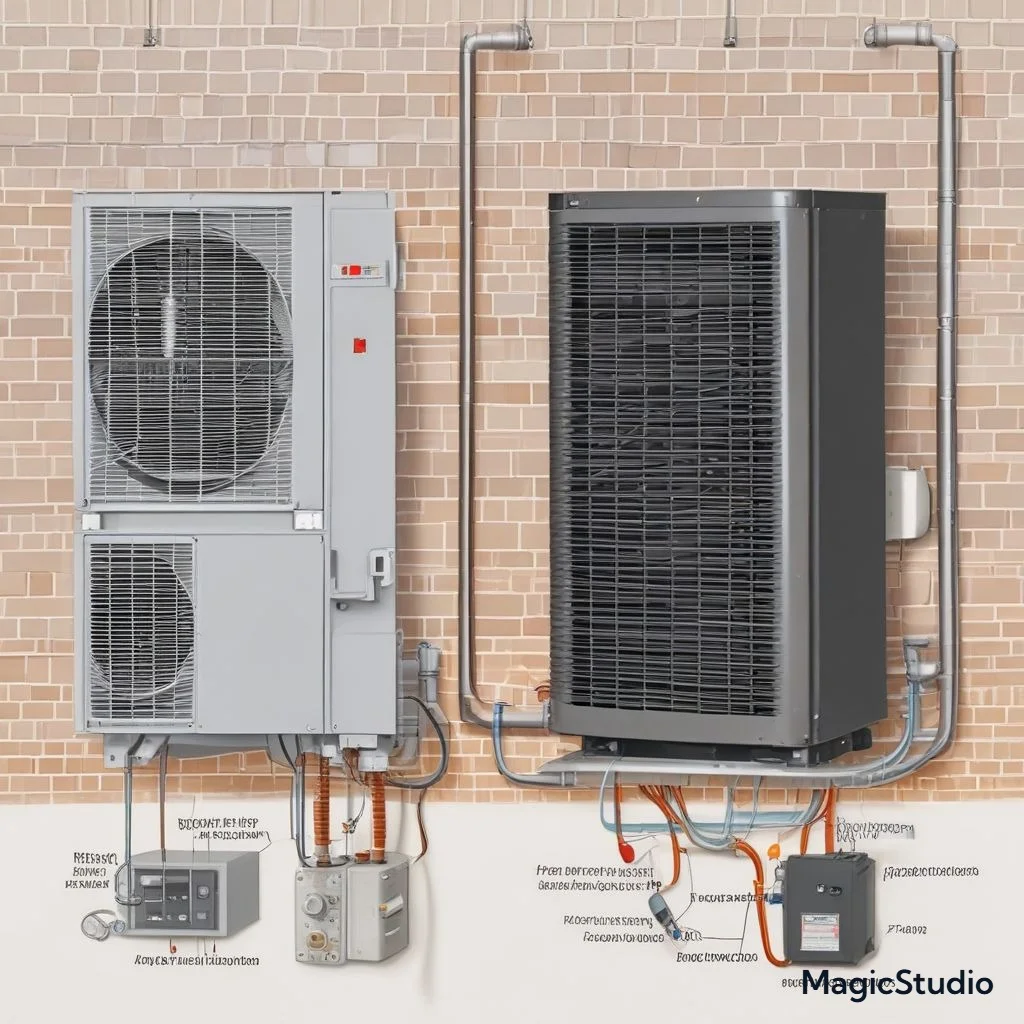
Which System Should You Choose?
When deciding between an air conditioner and a heat pump, consider:
- Climate: Heat pumps perform best in regions with moderate temperatures, while air conditioners are ideal for areas with prolonged heat.
- Budget: Heat pumps have higher upfront costs but can save money in the long term due to lower energy consumption.
- Purpose: If you need both heating and cooling, a heat pump offers greater versatility.
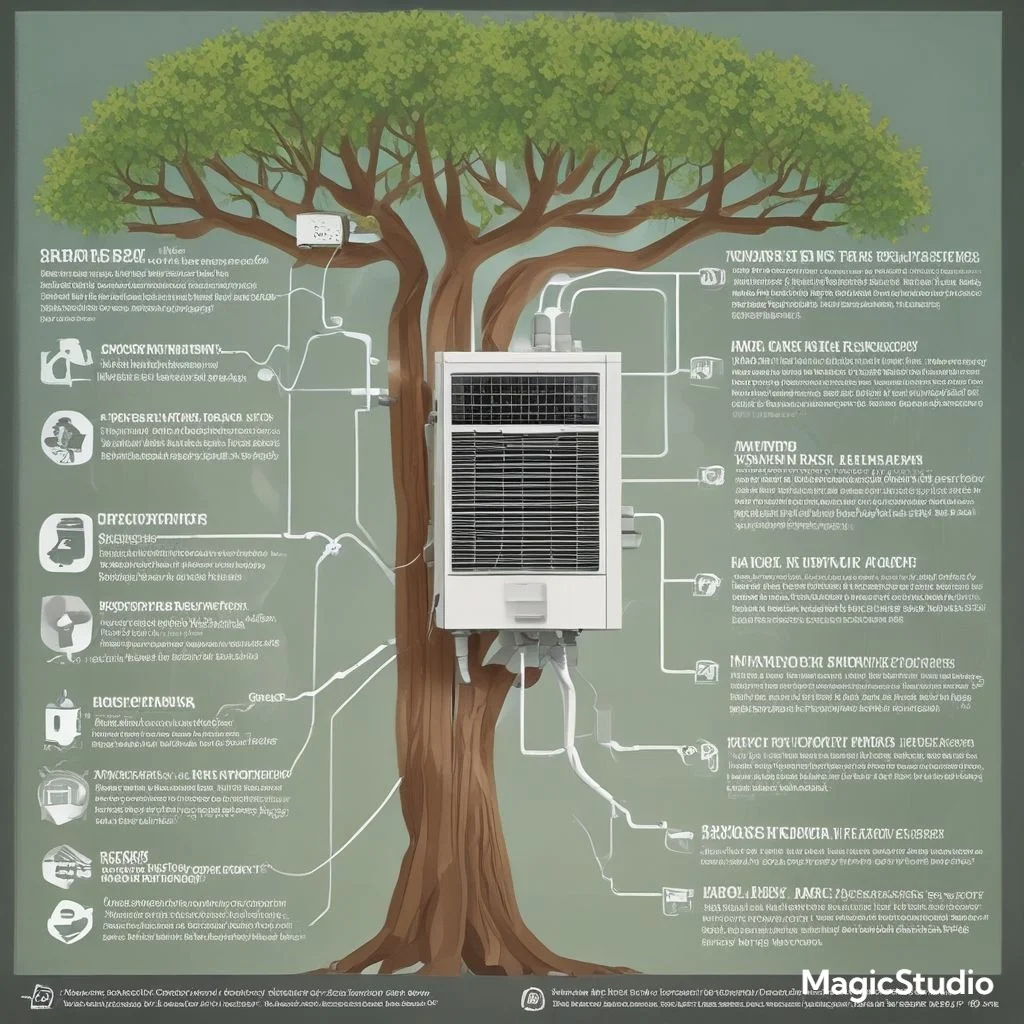
Heat Pump vs. Air Conditioner: Key Differences
When choosing between a heat pump and an air conditioner, understanding their differences is crucial. While both systems offer effective cooling, they vary in performance, cost, and efficiency. This guide explores these distinctions to help you make an informed decision.
Cooling Performance Comparison
Both heat pumps and air conditioners excel at cooling, but their performance may differ based on climate and usage.
- Heat Pumps:
Heat pumps are designed to transfer heat, making them capable of cooling indoor spaces by removing heat and expelling it outdoors. They perform effectively in moderate climates but may struggle slightly in extreme heat due to reduced efficiency. - Air Conditioners:
Air conditioners are optimized solely for cooling and are often better suited for hotter climates. They can consistently maintain lower indoor temperatures even during peak summer heat.
Key Takeaway:
- In extremely hot regions, air conditioners may offer better cooling performance.
- Heat pumps provide adequate cooling and offer added functionality for year-round use.
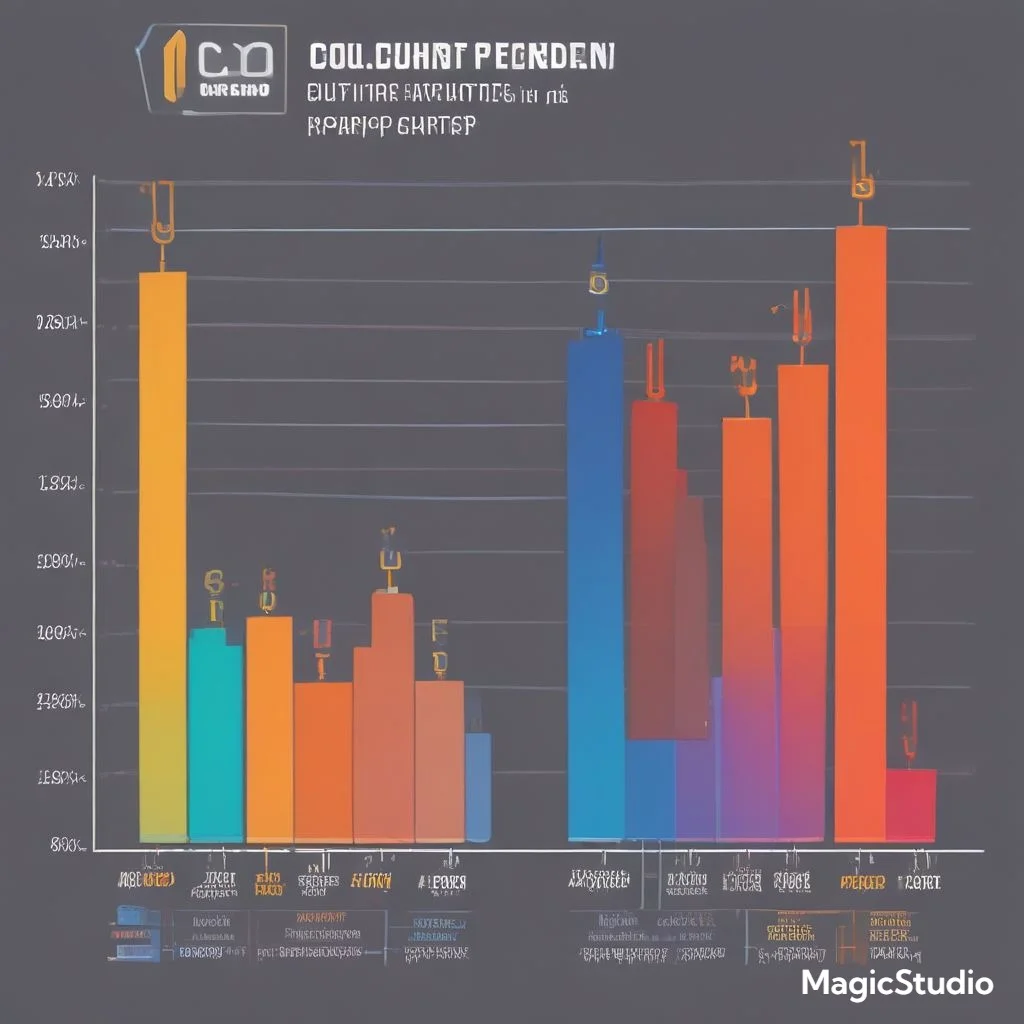
Cost of Installation and Maintenance
The initial investment and long-term maintenance costs vary significantly between heat pumps and air conditioners.
- Heat Pumps:
Heat pumps typically have a higher upfront cost due to their dual functionality (heating and cooling). Installation can also be more complex, especially for ground source systems. However, their maintenance costs are moderate, and their durability often offsets the initial expense over time. - Air Conditioners:
Air conditioners are generally more affordable to purchase and install. Maintenance is straightforward and often less expensive, but the need for a separate heating system in colder months can increase overall costs.
Key Takeaway:
- Heat pumps involve a higher initial investment but provide year-round utility.
- Air conditioners are cost-effective for cooling-only applications.
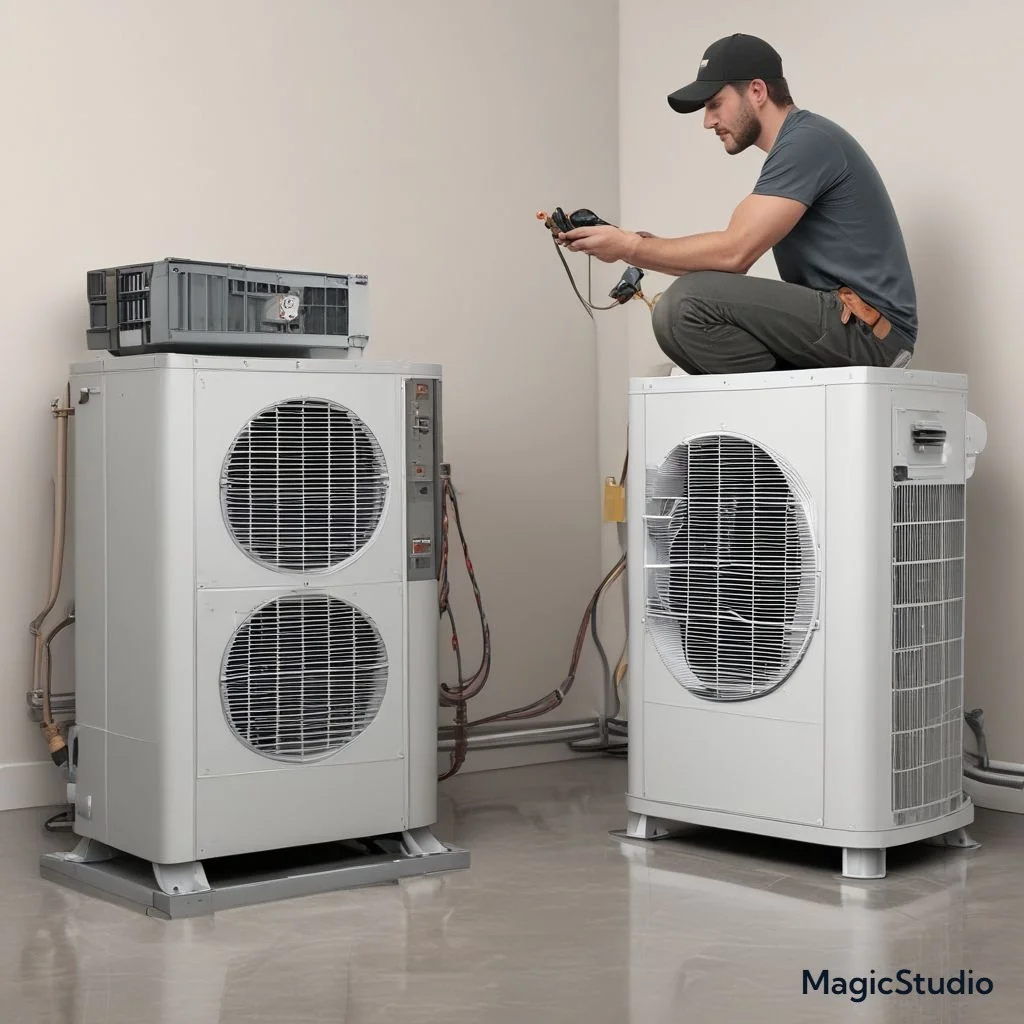
Energy Efficiency and Operational Costs
Energy efficiency is a significant factor when comparing these systems, as it impacts operational costs and environmental impact.
- Heat Pumps:
Heat pumps are highly energy-efficient, as they transfer heat rather than generate it. They consume less electricity and are environmentally friendly, particularly when paired with renewable energy sources. - Air Conditioners:
Air conditioners, while efficient, use more energy for cooling since they are limited to a single function. Their operational costs may be higher, especially in areas with prolonged heat.
Key Takeaway:
- Heat pumps offer better energy efficiency in moderate climates and can lower utility bills.
- Air conditioners may lead to higher energy costs but deliver robust cooling performance in hot weather.
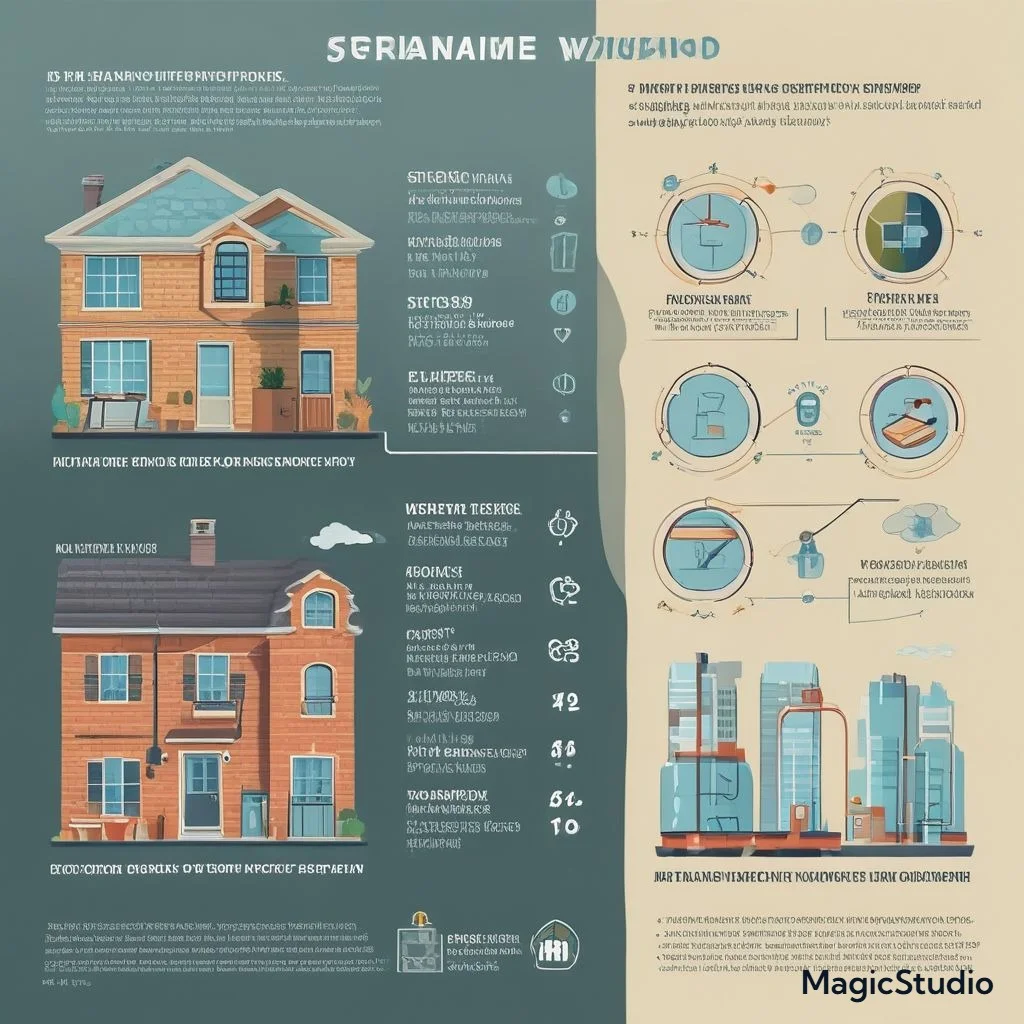
Advantages of Heat Pumps for Cooling
Heat pumps have gained popularity as a reliable solution for cooling homes. They provide several unique advantages, including dual functionality, environmental sustainability, and enhanced safety. Let’s dive into the specific benefits of using heat pumps for cooling and why they stand out as an energy-efficient option.
Dual Heating and Cooling Capabilities
One of the most compelling advantages of a heat pump is its ability to provide both heating and cooling within a single system.
- Cooling Mode:
During hot months, heat pumps efficiently extract heat from indoor air and release it outside, lowering indoor temperatures. This process is similar to how traditional air conditioners function. - Heating Mode:
In colder months, the heat pump reverses its cycle, drawing heat from the outside air (even in low temperatures) and bringing it indoors. This versatility eliminates the need for separate heating and cooling systems, reducing installation and maintenance costs.
Why It Matters:
- Cost-saving over time due to combined functionality.
- Convenient, year-round comfort in all seasons.
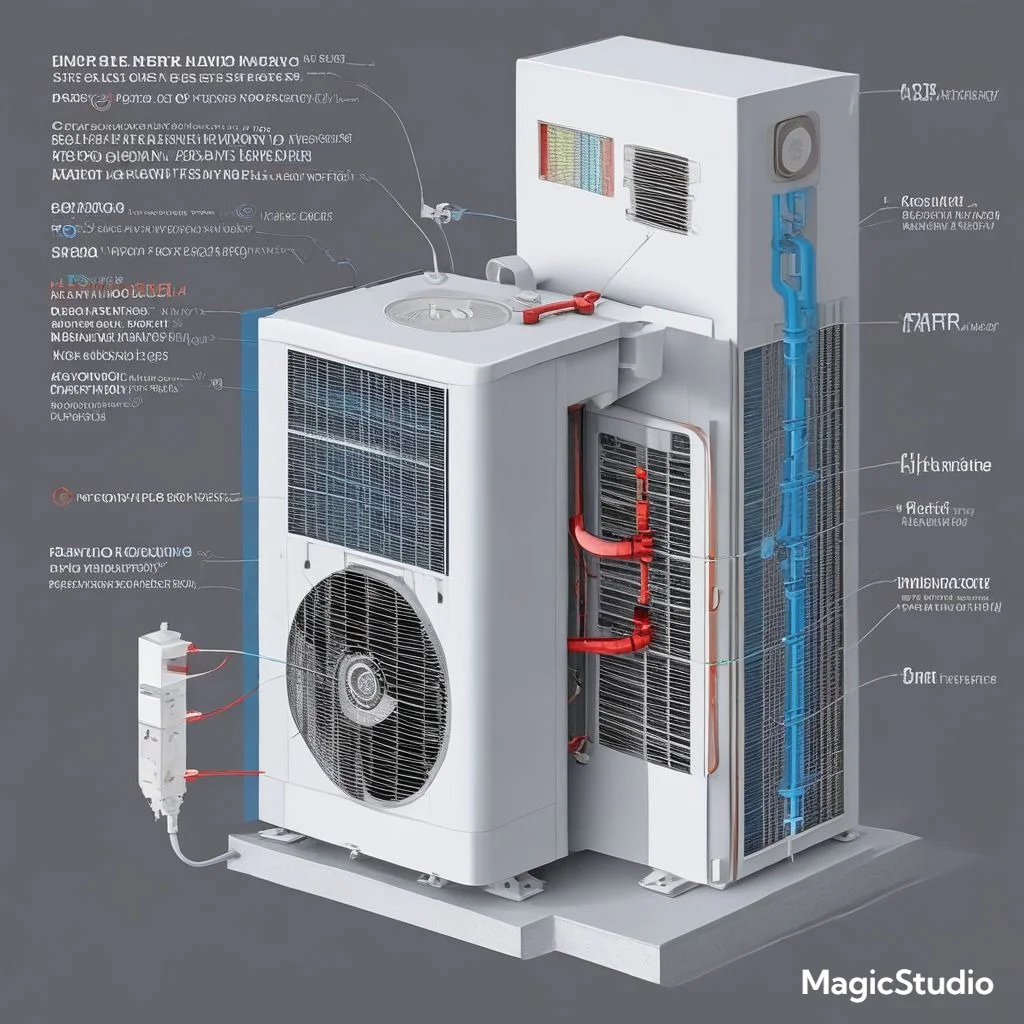
Sustainability and Environmental Benefits
Heat pumps are a green alternative to traditional HVAC systems, offering impressive energy efficiency and a smaller carbon footprint.
- Energy Efficiency:
Heat pumps transfer heat rather than generating it, using less energy than conventional heaters or air conditioners. For every unit of electricity consumed, a heat pump can deliver up to three units of cooling or heating. - Reduced Carbon Emissions:
By consuming less energy, heat pumps help reduce greenhouse gas emissions. They are especially eco-friendly when powered by renewable energy sources like solar or wind. - Refrigerants with Lower Environmental Impact:
Modern heat pumps use refrigerants with lower Global Warming Potential (GWP), further reducing their impact on the environment.
Why It Matters:
- Supports sustainability goals.
- Lowers energy bills while helping combat climate change.
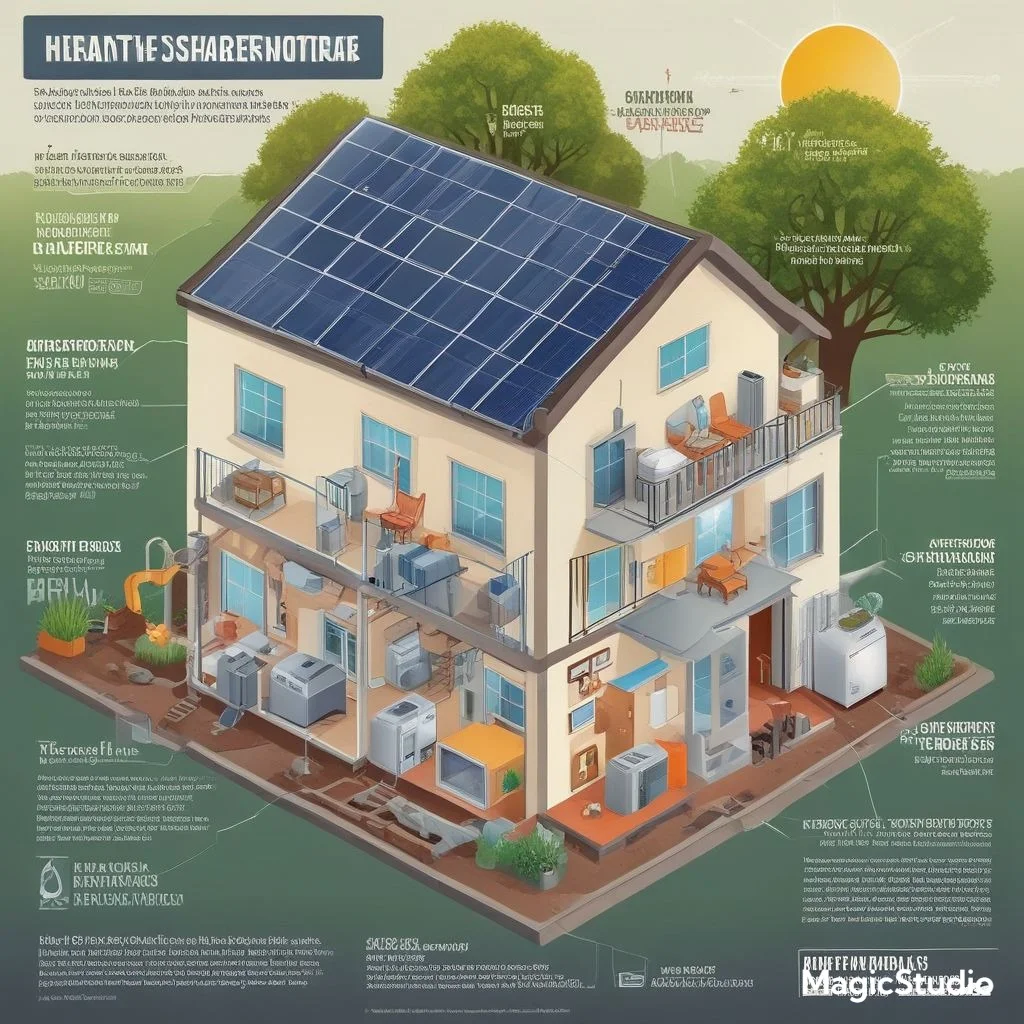
Safety and Versatility
Heat pumps are designed with safety and user convenience in mind, making them a reliable choice for homeowners.
- Safety Features:
Heat pumps do not rely on combustion or burning fuel, unlike gas furnaces or boilers. This eliminates the risk of carbon monoxide poisoning and reduces fire hazards. - Versatility in Installation:
Heat pumps are available in various forms, including ductless mini-split systems and central systems, allowing flexible installation options for homes of all sizes. - Quiet Operation:
Advanced models of heat pumps operate with minimal noise, enhancing comfort and peace of mind in residential spaces.
Why It Matters:
- Enhances home safety.
- Fits seamlessly into a variety of home layouts and needs.
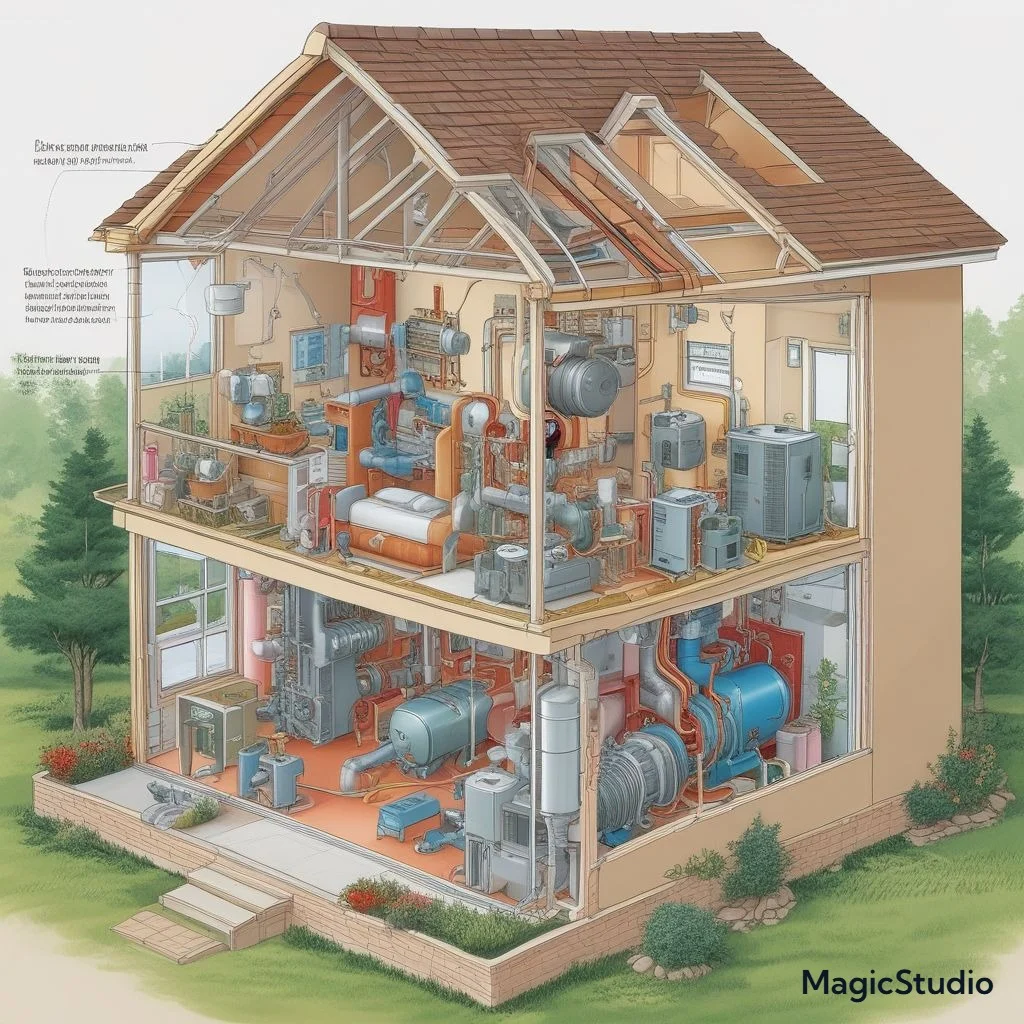
Which System Is Right for You: Heat Pump or Air Conditioner?
Choosing between a heat pump and an air conditioner depends on several factors, including your local climate, home size, and specific usage needs. Both systems have their advantages, but understanding their functionality and cost-efficiency will help you decide the best option for your home.
Factors to Consider Based on Climate, Home Size, and Usage
1. Climate:
- Mild or Moderate Climates: Heat pumps are ideal for regions with mild winters and moderate summers. They provide efficient heating during cool months and effective cooling during hot months.
- Extreme Climates: In regions with very hot summers, air conditioners are often better suited as they excel in delivering consistent cooling. For harsh winters, a supplemental heating system may be required alongside a heat pump.
2. Home Size and Insulation:
- Large Homes: If your home is large or has multiple stories, the size and capacity of the system play a critical role. Central air conditioners paired with well-insulated ducts might provide better cooling for larger spaces.
- Smaller or Zone-Specific Needs: For smaller homes or specific zones, ductless mini-split heat pumps are a great option due to their flexibility and efficient zone cooling capabilities.
3. Usage Patterns:
- Year-Round Comfort: If you need a single system that can handle both heating and cooling, a heat pump is the best choice.
- Dedicated Cooling: If your primary concern is cooling during hot summers, an air conditioner may be the simpler and more cost-effective solution.
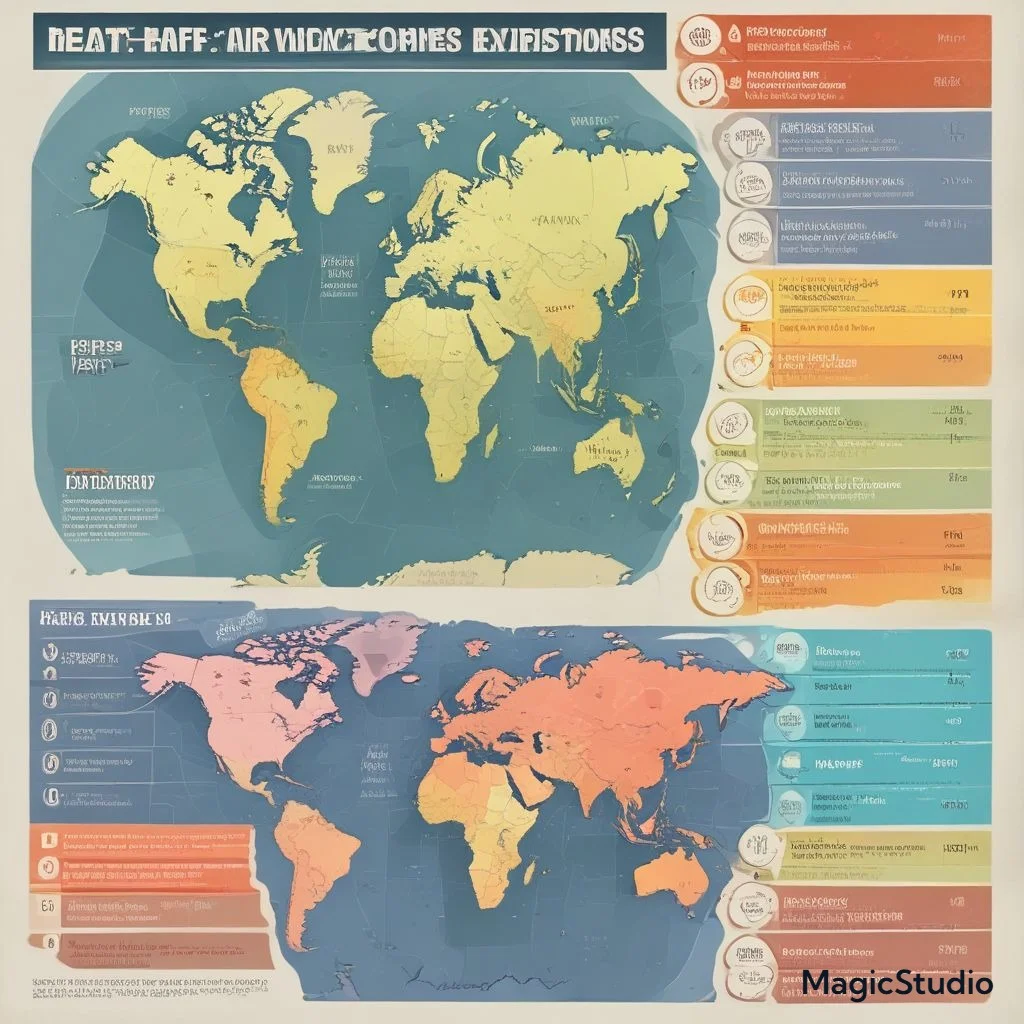
Cost vs. Efficiency Trade-Offs
1. Upfront Costs:
- Heat Pumps: These systems generally have higher initial costs due to their dual functionality. Installation is also more complex, which adds to the expense.
- Air Conditioners: Air conditioners typically have a lower upfront cost, making them an attractive option for homeowners on a budget.
2. Operational Costs:
- Heat Pumps: Over time, heat pumps can save money due to their energy efficiency. They consume less electricity for the amount of heating or cooling they provide, particularly when paired with renewable energy sources.
- Air Conditioners: While the initial cost is lower, air conditioners may incur higher operational costs, especially in energy-intensive regions with prolonged cooling seasons.
3. Maintenance Costs:
- Both systems require regular maintenance, but heat pumps may need slightly more frequent servicing due to their year-round usage.
Key Trade-Off:
- Long-Term Efficiency: Heat pumps are a better investment for energy savings in the long term, especially if you need both heating and cooling.
- Upfront Affordability: Air conditioners are a cost-effective choice for homes needing cooling alone.
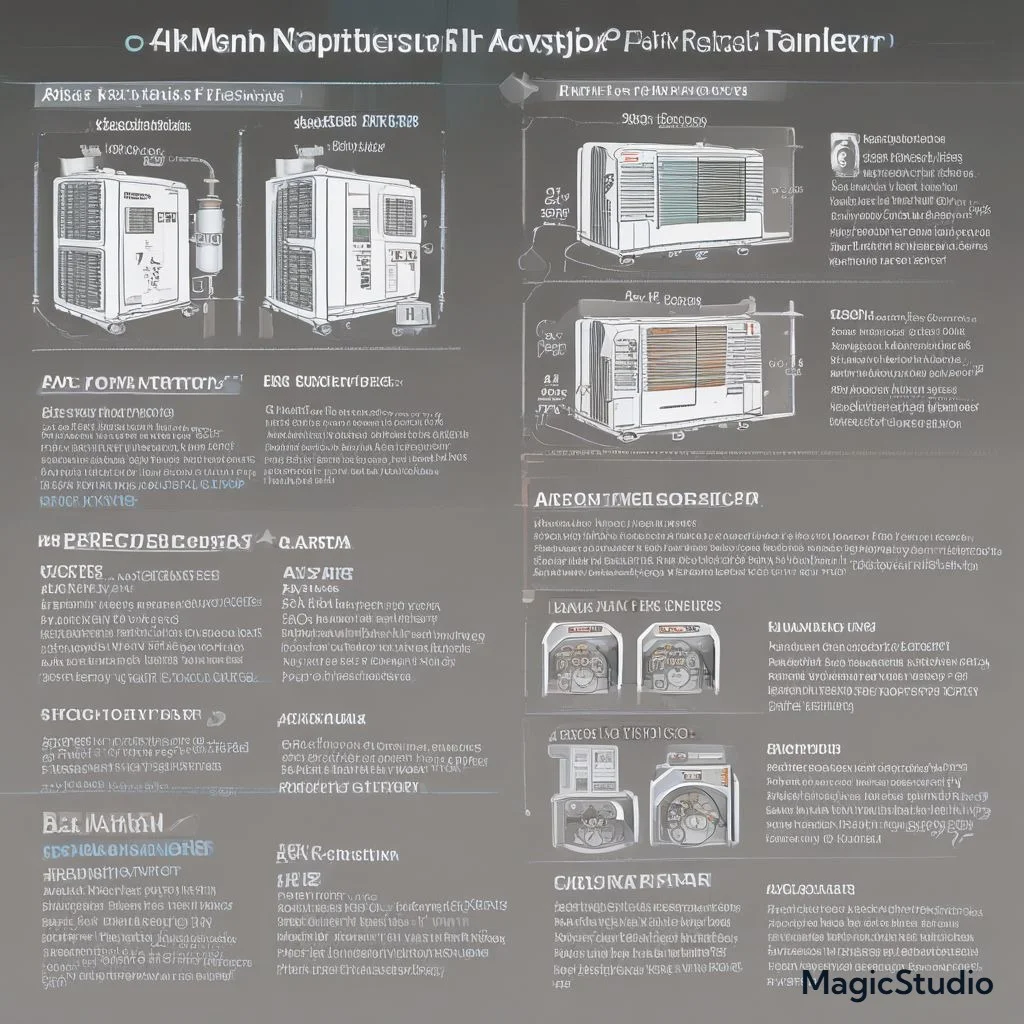
Making the Right Choice
To determine the right system for your home:
- Evaluate your climate and how often you require heating or cooling.
- Consider your home’s size and how effectively you want to cool or heat specific zones.
- Balance your budget against long-term energy savings.
The Cooling Performance of Heat Pumps
Heat pumps have become an increasingly popular choice for homeowners seeking efficient cooling solutions. Thanks to technological advancements, modern heat pumps can deliver outstanding cooling performance even in warm climates. Let’s explore how heat pumps handle seasonal cooling demands and the innovations that make them a competitive choice for effective air conditioning.
Seasonal Performance in Warm Climates
Heat pumps are specifically engineered to provide effective cooling, even in regions with high summer temperatures. Here’s how they perform:
1. Adaptability to Seasonal Changes:
- In warm climates, heat pumps work by extracting heat from indoor air and expelling it outdoors. The refrigerant cycle ensures that indoor spaces remain cool and comfortable, even during peak summer heat.
- For mild or moderate climates, heat pumps adjust seamlessly to lower cooling demands, making them energy-efficient throughout the cooling season.
2. Efficiency Metrics:
- The Seasonal Energy Efficiency Ratio (SEER) measures a heat pump’s cooling efficiency. Modern heat pumps often have high SEER ratings, indicating better performance with lower energy consumption.
- Homeowners in warm regions benefit from reduced electricity bills due to the system’s optimized cooling cycle.
3. Real-World Application:
- In areas with temperatures exceeding 90°F, modern heat pumps are equipped to maintain consistent cooling output without overburdening the system.
- Their ability to manage humidity levels also ensures a more comfortable indoor environment.
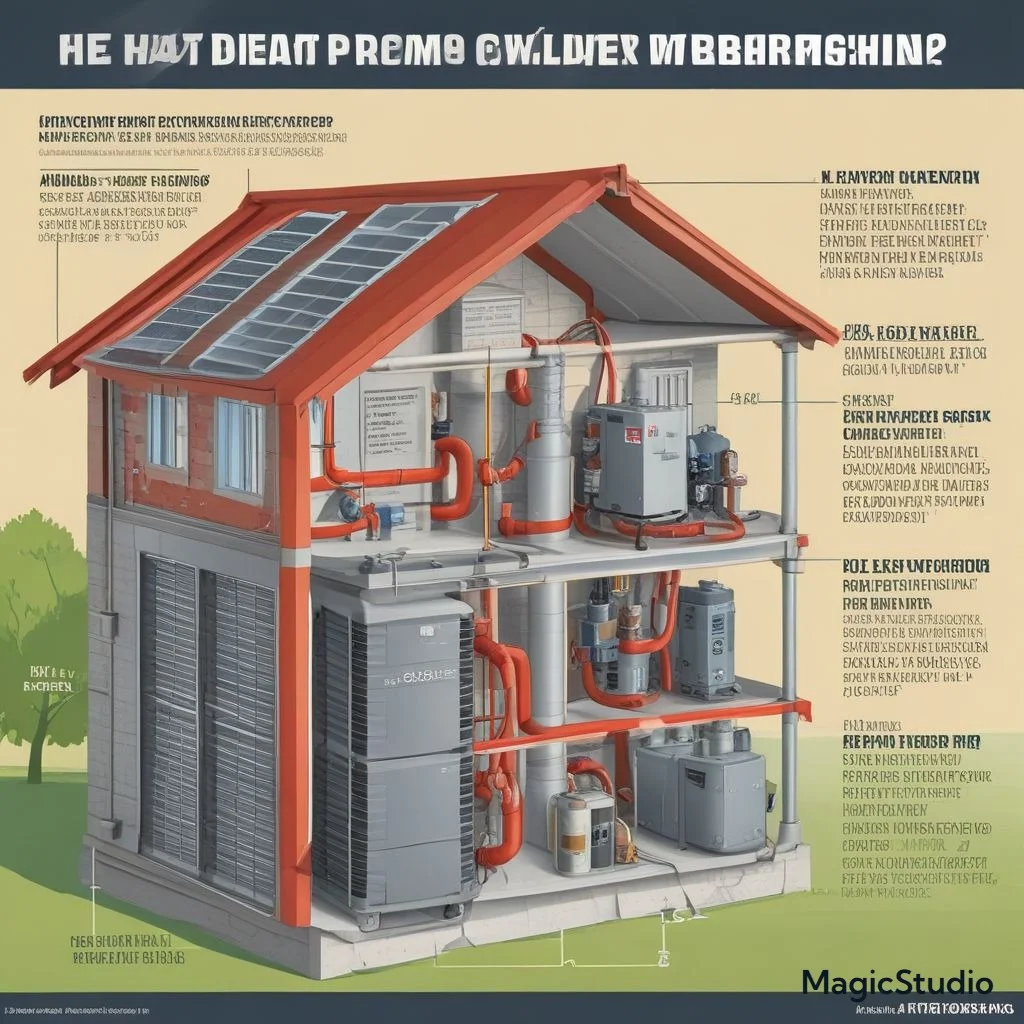
Heat Pump Technology Advancements for Effective Cooling
Modern heat pumps incorporate innovative features that enhance their cooling performance:
1. Inverter Technology:
- Inverter-driven heat pumps allow for variable-speed operation, adjusting the compressor speed based on cooling demand.
- This results in more precise temperature control, reduced energy consumption, and quieter operation.
2. Advanced Refrigerants:
- New refrigerants, such as R-410A and R-32, improve the efficiency of heat pumps while being more environmentally friendly. These refrigerants enhance heat transfer, ensuring faster and more effective cooling.
3. Improved Coil Designs:
- Enhanced evaporator and condenser coil designs maximize the heat exchange process, boosting cooling capacity.
- Anti-corrosive coatings on coils also ensure durability and long-term performance, especially in humid climates.
4. Smart Controls and Monitoring:
- Smart thermostats integrated with heat pumps allow homeowners to monitor and control cooling remotely.
- Features such as energy usage reports and customizable schedules optimize performance and savings.
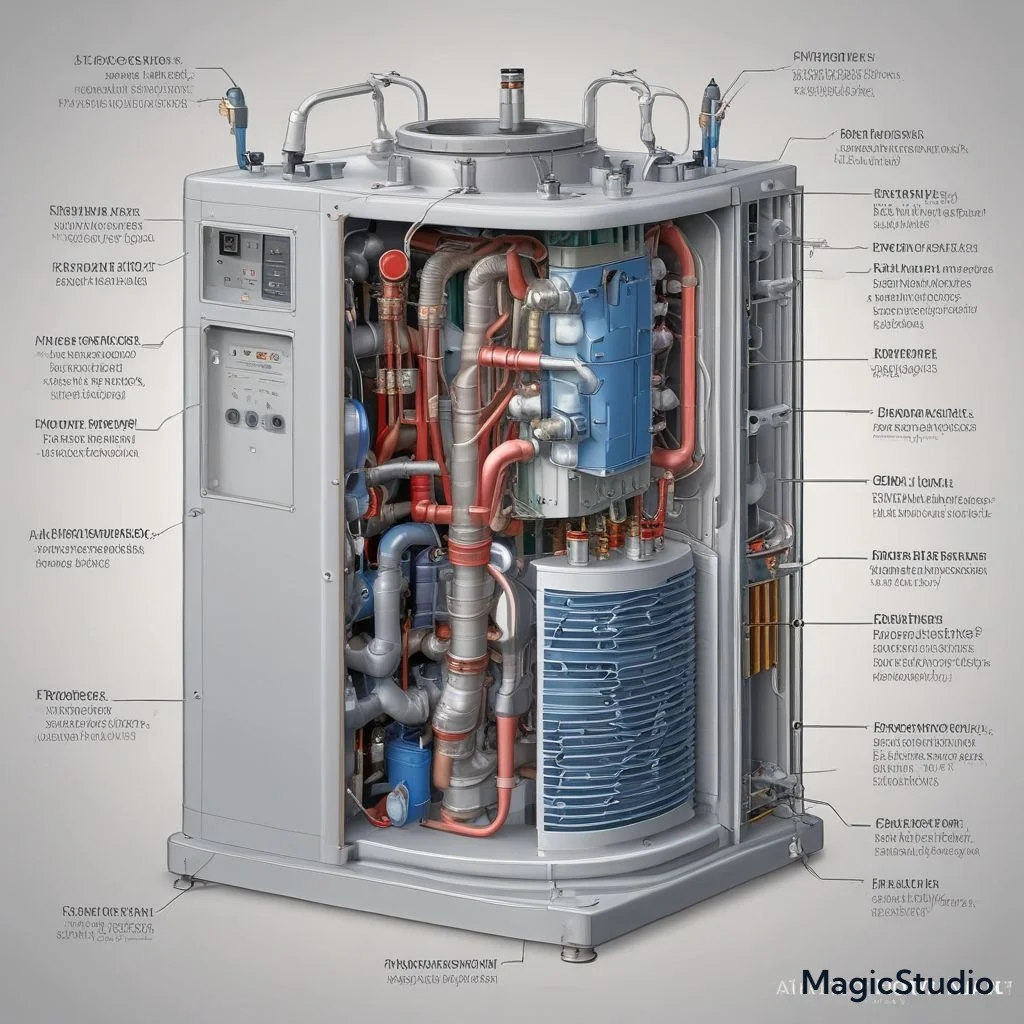
Advantages of Heat Pump Cooling Performance
- Energy Efficiency: Heat pumps consume significantly less electricity compared to traditional air conditioners, reducing overall energy bills.
- Eco-Friendliness: Modern heat pumps contribute to sustainability by utilizing eco-friendly refrigerants and minimizing energy wastage.
- Quiet Operation: Advanced technologies ensure quieter cooling cycles, making them ideal for residential use.
FAQs: Does a Heat Pump Cool as Well as an Air Conditioner?
Heat pumps and air conditioners both excel in cooling, but they differ in functionality, energy efficiency, and versatility. Below, we address common questions to help you understand whether a heat pump can cool as effectively as an air conditioner.
Q: Is it better to have a heat pump or air conditioner for cooling?
A:
Choosing between a heat pump and an air conditioner depends on your specific needs:
- Heat Pump: Ideal if you need both heating and cooling from a single system. Heat pumps are versatile and highly efficient in moderate climates where the demand for extreme cooling or heating is lower.
- Air Conditioner: If your primary concern is powerful cooling, especially in extremely hot climates, an air conditioner might be the better option due to its specialization in cooling.
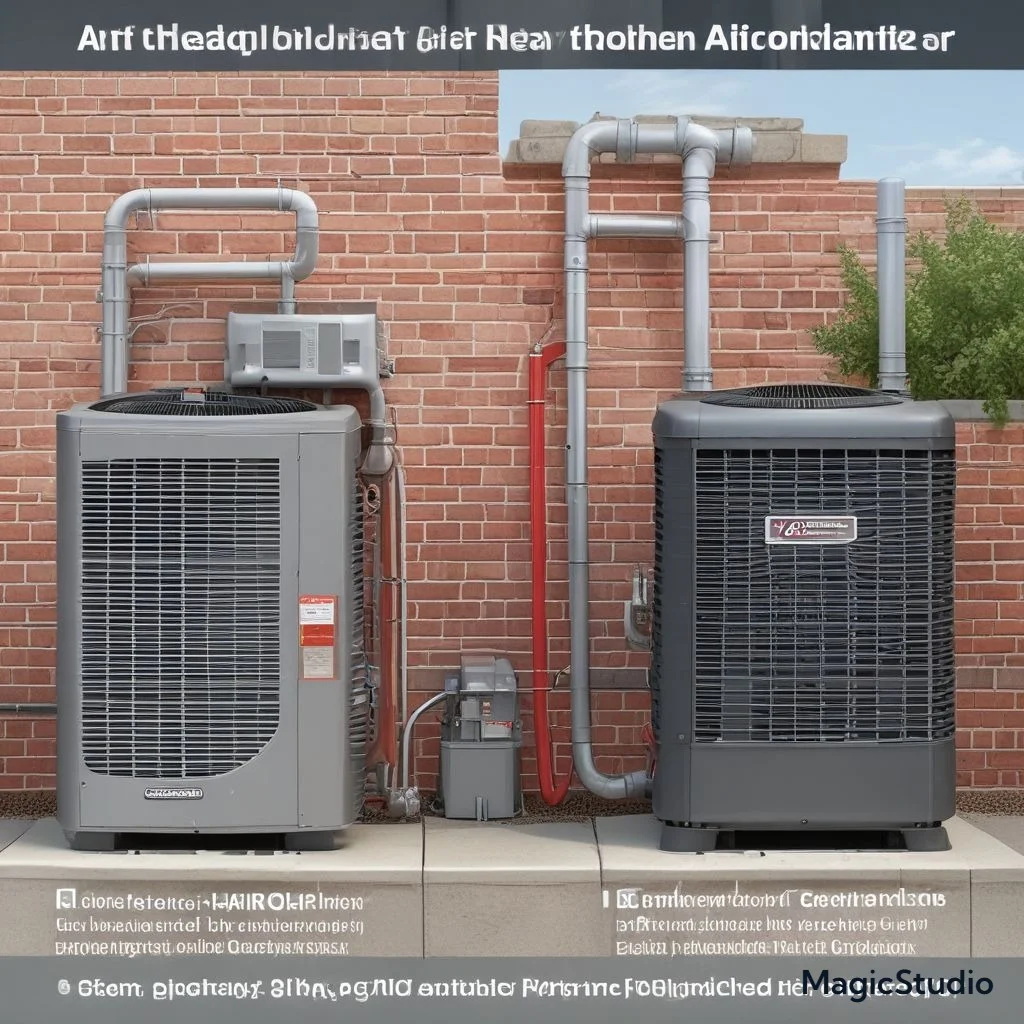
Q: Can a heat pump replace an air conditioner?
A:
Yes, a heat pump can replace an air conditioner and serve dual purposes: cooling during summer and heating during winter. This dual functionality makes it a cost-effective and space-saving choice for homeowners who want year-round comfort from a single system.
- Heat pumps use the same refrigeration cycle as air conditioners for cooling, ensuring comparable performance.
- During colder months, the system reverses to provide heating, eliminating the need for a separate furnace or heating system.
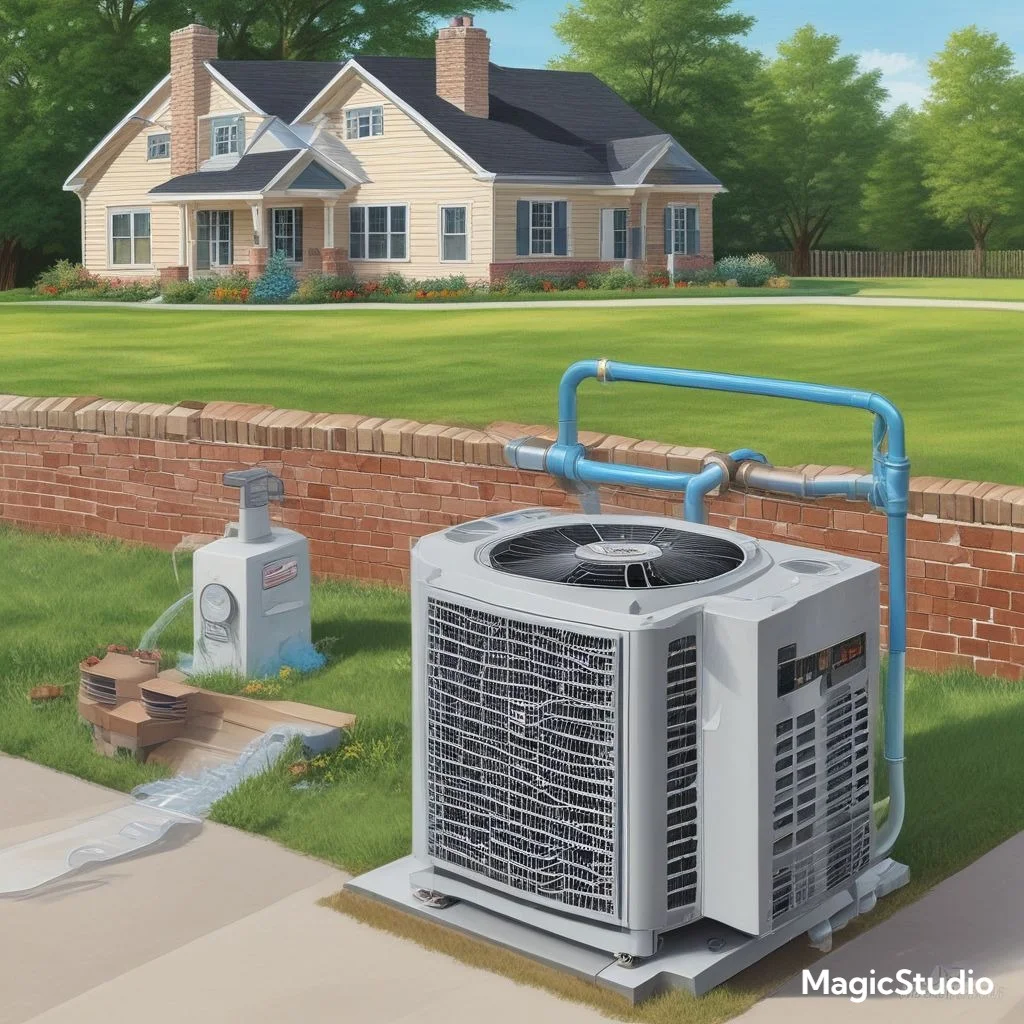
Q: Do heat pumps offer the same cooling efficiency as air conditioners?
A:
Modern heat pumps are engineered to provide cooling performance comparable to air conditioners:
- With advancements such as variable-speed compressors and high SEER ratings, heat pumps can cool homes as effectively as air conditioners.
- In extreme heat, air conditioners may have a slight edge in performance due to their dedicated cooling design, but the difference is negligible in most modern systems.
Energy Tip: Look for ENERGY STAR-rated heat pumps for optimal cooling efficiency and lower electricity bills.
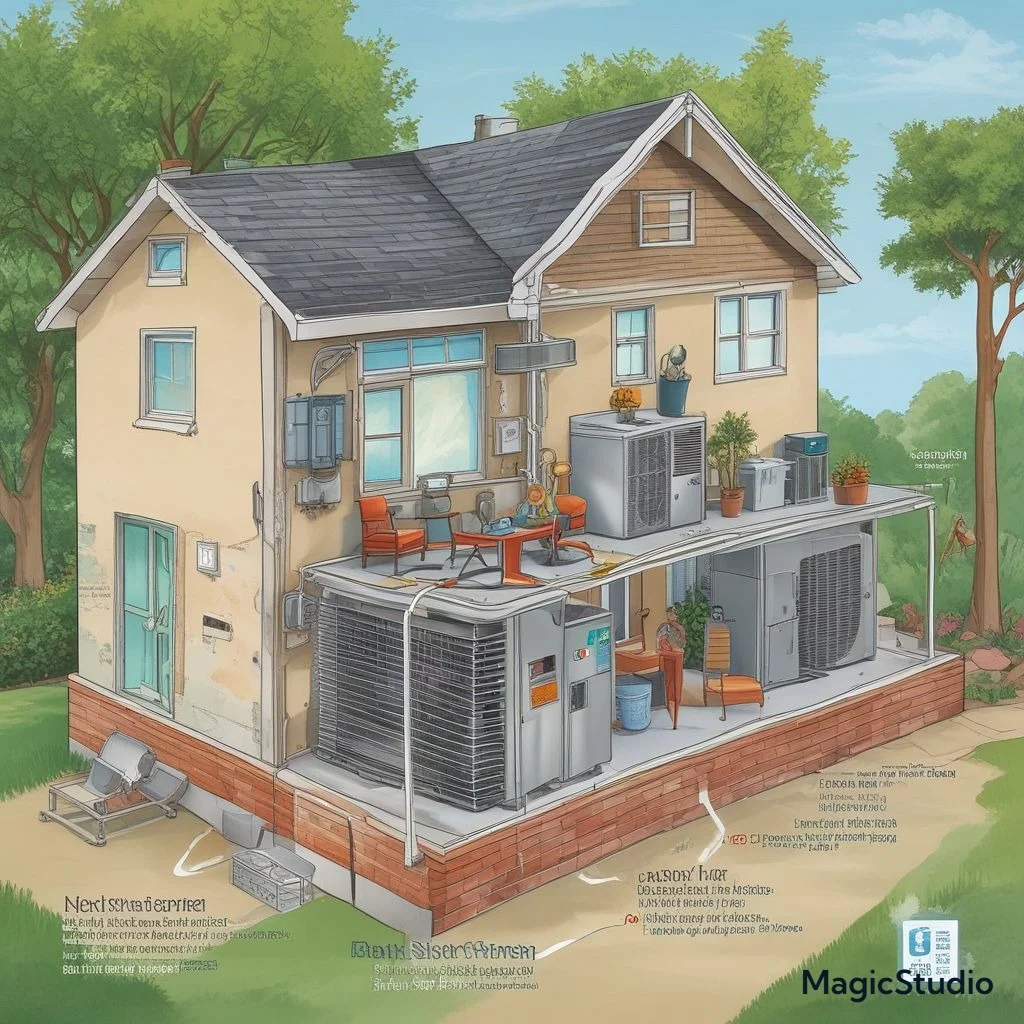
Q: Are heat pumps more energy-efficient than air conditioners?
A:
Heat pumps are often more energy-efficient than air conditioners because they:
- Transfer heat instead of generating it, consuming less energy overall.
- Operate efficiently in moderate climates, where the cooling demand isn’t extreme.
- Provide both heating and cooling, reducing the need for multiple systems.
In warm climates with moderate winters, the energy savings from using a heat pump can outweigh its initial cost.
Q: Does a heat pump work like an air conditioner in hot weather?
A:
Yes, heat pumps work similarly to air conditioners during hot weather:
- Both systems extract heat from indoor air and expel it outside using a refrigeration cycle.
- Modern heat pumps are equipped with advanced refrigerants and coil designs to ensure effective cooling, even in temperatures exceeding 90°F.
Additional Insight: Heat pumps also regulate humidity levels during cooling, creating a more comfortable indoor environment.
Conclusion
When deciding between a heat pump and an air conditioner, it’s essential to consider your climate, budget, and overall comfort needs. Heat pumps offer impressive versatility, delivering both efficient cooling in summer and reliable heating in winter, making them a year-round solution for many homes. On the other hand, air conditioners excel in providing powerful and consistent cooling, particularly in areas with scorching summers. With advancements in technology, both systems now offer high energy efficiency, environmental benefits, and robust performance. By understanding their differences, advantages, and suitability for your home, you can make an informed decision that aligns with your comfort and efficiency goals. Whether you choose a heat pump or an air conditioner, investing in the right system will ensure optimal indoor climate control for years to come.

